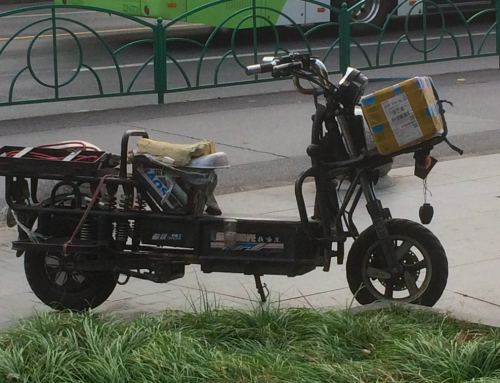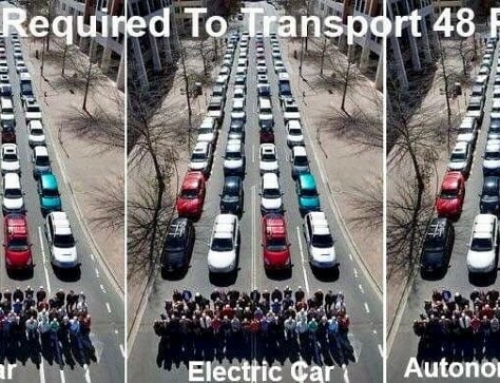Should transport systems be designed to save time – or calories? Who should own mobility sharing platforms: private companies? cities? us? What kind of ecosystem is needed to support the sharing platforms we want? These three questions are the focus of a workshop in London on 25 November. I’ve asked a three friends to join me on a panel: Tessy Britton, Co-founder of Civic Systems Lab and Participatory City; they just published their research report Designed to Scale; Blaine Cook, formerly lead developer of Twitter, now a founder of collaborative text editing startup Poetica; and (by Skype) Trebor Sholz, co-curator of last week’s already-celebrated conference on platform cooperativism. This post frames three questions we will discuss – hopefully, with you, too.

(Above: Multivan concept by Thomas Lommée)
Taxi. Pick-up. Delivery. Assistance. Vendor. Security. Rental.
Seven functions, one vehicle. The signs on that one small van describe a new way to think about mobility: the use of multiple mobility ‘assets’ to support a wide variety of services.
In the concept of Mobility as a Service (MaaS) the van, when coupled with a
pay-per-use leasing framework, and distributed computing, becomes one element within an asset-light mobility ecosystem.
The manufacturers of large heavy vehicles are hedging their bets in this space. Moovel, a German start-up that “shows you available mobility options so you can reach your destination with ease”, is backed by Daimler,
Platforms like MaaS and Moovel do not dwell much on the design of vehicles. Their focus, instead, is on ‘cloud commuting’ – enabling access to the means to move (such as the micro-van) as-and-when they are needed.
When every ride is an encounter, and every traveller an entrepreneur, these platform can enable new relationships between people, goods, energy, equipment, spaces, and value. A commuter can deliver a package on her way to work. The electric motor on a pedelec might be used to drive a balcony hoist.
This is in sharp contrast to ownership of a large heavy artefact, such as a Tesla, that requires enormous resources to produce – only to sit unused for 95 percent of the time.
Radically adaptive use can involve non-cash transactions, too. As with any other piece of equipment a borrowed vehicle, properly used and returned – or a service well-executed – can add to your reputation as a sharer. An enhanced reputation might give you access to use credits, discounts on services, or the use of other vehicles, equipment, and workplaces.
With Lazooz, for example, the community which owns and uses the platform collectively decides about the reward in zooz for each contribution via sophisticated protocols. The ‘weight’ of each member’s input is dynamically set by the community itself. A cryptocurrency technology supports a ‘Fair Share’ rewarding mechanism for developers, users and backers.
Here are three starter questions for our discussion on the 25th:
Q1. Time, or calories?
Until now, transportation has been planned to ‘save’ time. In this age of energy transition, would a better criterion not be, how to save calories? And if it looks as if ride-sharing services like Uber might actually put more cars on the road by competing with public transport, what then?
Q2. Bright light – or dark star?
For Neil Gorenflo, Uber’s rush to be a global monopoly makes it a dark star in the sharing economy. Are we clear about the difference between dark star platforms, and socially and environmentally progressive ones? And who should own them: private companies? cities? us?
Q3. What kind of ecosystem?
For cooperative platforms to work, they will need more than clever ideas for apps. Uber and Airbnb have grown “not just on their own merits, but thanks to an ecosystem of high-risk investors, incubators, coding schools, government incentives, and tech conferences”. How is an an ecosystem for platform cooperativism to be grown?
You need to book but all proceeds of the event will go to Sustrans, which is a charity. Copies of my new book will also be on sale at a special discount; 10% of the proceeds of those sales go to the author of this post.




